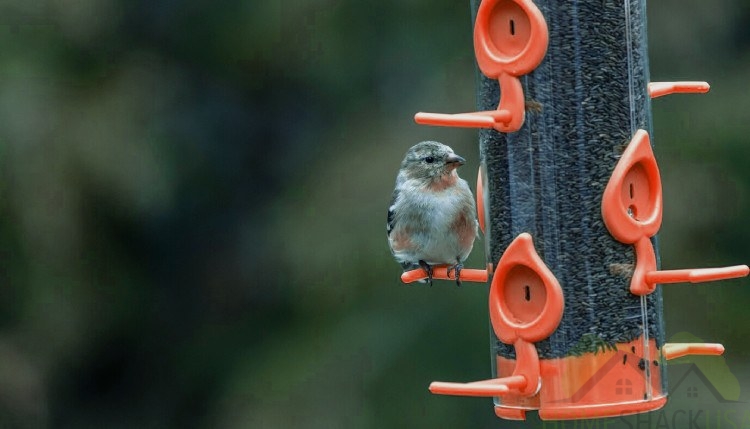Canary birds, with their vibrant plumage and delightful songs, have captured the hearts of bird enthusiasts for generations. These cheerful creatures can bring joy and charm to any home, but they also require responsible and attentive care to thrive.
In this comprehensive guide, we’ll dive into the world of canary care, covering everything from lifespan and veterinary needs to dietary preferences, environmental conditions, and more.
Canary birds – lifespan and longevity
Canary birds, when provided with proper care, can live a remarkably long life. On average, they have a lifespan of 7 to 10 years, but some canaries have been known to reach 15 years or more. This longevity underscores the importance of creating a nurturing and comfortable environment for your feathered friend.
What kind of veterinary care do they need
Regular veterinary check-ups are essential to ensure the health and well-being of your canary. Annual visits to an avian veterinarian can help detect and prevent potential health issues.
Be vigilant for signs of illness, such as changes in appetite, activity levels, or appearance, as canaries are experts at hiding their ailments. Immediate veterinary attention is crucial if you notice any concerning symptoms.
Diet – what to feed and what to avoid
A well-balanced diet is fundamental to your canary’s health. Here’s what you need to know about their dietary preferences:
Canary birds and seeds:
Canaries enjoy a variety of seeds, including millet, sunflower seeds, and canary grass seeds. However, seeds alone do not provide all the essential nutrients they need and should be only a portion of their diet.
Canary birds and pellets:
High-quality canary pellets are specially formulated to provide a balanced diet. They contain essential vitamins and minerals and can serve as a staple food source.
Canary birds and fresh fruits / vegetables:
Offer a mix of fresh fruits and vegetables like apples, carrots, and leafy greens. These provide essential vitamins and hydration.
Canary birds and calcium sources:
Include calcium sources such as cuttlebones or mineral blocks to support your canary’s bone health.
What to avoid
Avoid feeding your canary bird with:
- Avocado;
- Chocolate;
- Alcohol;
- Caffeine;
- High-sugar or high-salt foods.
Canary birds and water
Fresh, clean water should always be available. Ensure that the water container is changed daily to prevent contamination.
What are the ideal temperatures for canary birds
Canaries are sensitive to temperature extremes. They thrive in moderate temperatures, ideally between (15°C to 24°C). Avoid placing their cage in draughty areas or direct sunlight, as both can lead to stress and health problems.
It’s essential to maintain a consistent temperature in their living space.
Environmental considerations
Creating the right environment for your canary is crucial for their happiness and well-being. Choosing a spacious cage that allows your canary to stretch their wings and move freely is the first step. A horizontal flight cage is ideal.
Provide a variety of perches with different thicknesses and textures to keep their feet healthy. Canaries are playful birds, so offer toys such as swings, mirrors, and chewable toys to keep them mentally stimulated.
Regularly clean the cage, including changing the bedding, removing droppings, and washing food and water dishes. A clean environment helps prevent illness. While canaries are generally solitary birds, they still benefit from social interaction.
Spend time talking to or singing with your canary to build a bond. Cover the cage at night to provide a sense of security and darkness, which is essential for proper sleep.
Sunlight exposure
Canaries are diurnal birds, meaning they are active during the day. They benefit from exposure to natural light. Ensure that their cage is in a well-lit area but avoid direct sunlight, as it can lead to overheating. A balance of natural and artificial light is ideal.
Singing and vocalization
Canaries are renowned for their melodious songs. Male canaries are usually more vocal than females. If you have a male canary, provide them with a peaceful and quiet environment to encourage singing. It’s their way of expressing contentment and happiness.
Molt and feather care
Canaries go through periodic moulting, during which they shed old feathers and grow new ones. Ensure that they have a nutritious diet during this time to support feather growth.
You can also offer a bird bath for bathing, which helps maintain feather health.
Handling and taming
Taming a canary requires patience and gentle handling. Start by allowing them to become accustomed to your presence and voice.
Gradually introduce your hand and offer treats to build trust. Respect their boundaries, as some canaries may not enjoy being handled extensively.
Caring for a canary bird is a rewarding experience
Caring for a canary is a rewarding experience that can bring both joy and harmony to your home. From their cheerful songs to their vibrant plumage, canaries are captivating creatures that deserve the best care you can provide.
Remember to prioritise their dietary needs, maintain an appropriate environment, and ensure regular veterinary care to promote a long and happy life for your feathered friend. With the right attention and love, your canary will thrive and become a cherished member of your family.





